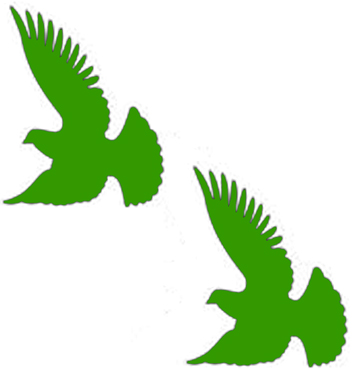Q: Why am I losing so many race birds?
As to your problem of losing so many birds -- unless your birds are of extremely poor quality, it has to be a management problem. Let's just remember one thing. A bird that is dragging home from a race or training toss and then gets mutilated by going to another race or long training toss just gets further and further behind. An animal that has to struggle to get home certainly is not gaining anything physically or learning anything.
So let's address a few basics. Instead of beating yourself and the birds down the road, a week off for you and the birds might do wonders. Why don't you sit on the deck, have a hot or cold drink, and let them exercise around the loft and then try shipping them to the race like always. I think it will do you both good.
The birds that you do enter in the race, please check them over carefully. They must be full bodied, their pectoral muscles or chest must be warm and smooth to the touch, pink in color. The opposite condition would be dark or purple, dry and tight, lack of suppleness.
Other possible problems could be some sort of sickness that you pick up within a few days. The top of the list would probably be canker. You should be treating every couple of weeks minimum. Avoid Ridzol at this time since there is canker that is resistant to that drug spreading throughout the country right now. So treat with Emtryl, but only early in the week. Drug of choice at this time should be Flagyl, which is non-toxic and can be used throughout the week if necessary.
Coccidiosis is another very obvious problem.
Another problem that arises in many lofts and can be devastating since the birds look good but will not perform is that of pigeon malaria which is transmitted via the pigeon fly. If you see flies on the birds, take care of that immediately.
The other obvious problem is one of respiratory complications. You normally spot this when a bird, after exercising, has an open beak, does not want to exercise, or does not leave when you release the birds while training -- in other words, they circle more than necessary.
Other tell-tale signs of respiratory problems is that the wattles are not chalk-white, but appear greasy or have a dark coloring at their edges such as appearing to be wet. Little bubbles in the corners of the eyes is another thing to look for.a
